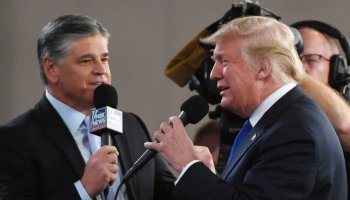CAIRO — Egyptian President Hosni Mubarak named a vice president Saturday for the first time since coming to power nearly 30 years ago – a clear step toward setting up a successor in the midst of the biggest anti-government protests of his regime.
After five days of protests, Cairo was engulfed in chaos. There was rampant looting and lawlessness was spreading fast. Residents of affluent neighborhoods were boarding up their houses against gangs of thugs roaming the streets with knives and sticks and gunfire was heard in some neighborhoods.
Tanks and armored personnel carriers fanned out across the city of 18 million, guarding key government buildings. Egyptian television reported the army was deploying reinforcements to neighborhoods to try to control the lawlessness.
The military was protecting major tourist and archaeological sites such as the Egyptian Museum, home to some of the country’s most treasured antiquities, as well as the Cabinet building. The military closed the pyramids on the outskirts of Cairo – Egypt’s premiere tourist site.
On Friday, protesters burned down the headquarters of Mubarak’s ruling party along the Nile and set fire to other buildings, roaming the streets of downtown Cairo in defiance of a night curfew enforced by the first army deployment.
Thousands of protesters defied the curfew for the second night Saturday, standing their ground in the main Tahrir Square
in a resounding rejection of Mubarak’s attempt to hang onto power with promises of reform and a new government.
“What we want is for Mubarak to leave, not just his government,” Mohammed Mahmoud, a demonstrator in the city’s main Tahrir Square, said Saturday. “We will not stop protesting until he goes.”
A few tanks were deployed in Tahrir Square. But there have been no clashes reported between protesters and the military at all and many feel the army is with them. On one tank was scrawled black graffiti: “Down with Mubarak.”
In contrast, protesters have attacked police, who are hated for their brutality. On Friday, 17 police stations throughout Cairo were torched, with protesters stealing firearms and ammunition and setting some jailed suspects free. They also burned dozens of police trucks in Cairo, Alexandria and Suez.
On Saturday, protesters besieged a police station in the Giza neighborhood of Cairo, looted and pulled down Egyptian flags before burning the building to the ground.
One army captain joined the demonstrators in Tahrir, who hoisted him on their shoulders while chanting slogans against Mubarak. The officer ripped a picture of the president.
“We don’t want him! We will go after him!” demonstrators shouted. They decried looting and sabotage, saying: “Those who love Egypt should not sabotage Egypt!”
Violence erupted when thousands of protesters tried to storm the Interior Ministry and police opened fire. At least three protesters were killed and their bodies were carried through the crowd.
The death toll for five days of protests has risen sharply since Friday to at least 62 with about 2,000 injured on both sides, according to security officials.
The protesters are unified in one overarching demand – Mubarak and his family must go. The movement is a culmination of years of simmering frustration over a government they see as corrupt, heavy-handed and neglectful of grinding poverty.
Mubarak sacked his Cabinet Saturday and promised reforms to try to quell the protests, but it did not satisfy the demonstrators who were out in force again to demand a complete change of regime.
Mubarak named his intelligence chief of nearly two decades and close confidant Omar Suleiman, state television reported.
The president had been seen as grooming his son Gamal to succeed him, possibly even as soon as in presidential elections planned for later this year. However, there was significant public opposition to the hereditary succession.
The appointment of Suleiman, 74, answers one of the most intriguing and enduring political questions in Egypt: Who will succeed 82-year-old Mubarak?
Another question is whether his appointment will calm the seething streets of Egypt’s cities.
Like Mubarak, Suleiman has a military background. The powerful military has provided Egypt with its four presidents since the monarchy was toppled nearly 60 years ago. He has been in charge of some of Egypt’s most sensitive foreign policy issues, including the Palestinian-Israeli peace process.
Suleiman, additionally, is widely seen as a central regime figure, a position that protesters were likely to view negatively.
Mubarak also named his new prime minister Ahmed Shafiq, the outgoing civil aviation minister and fellow former air force officer.
Both appointments perpetuate the military’s overriding role in Egyptian politics.
Mubarak, confronted with the most dire threat to his three decades of authoritarian rule, faced his nation for the first time since the unrest began in a televised address after midnight. He made vague promises of social reform in what is likely to be interpreted as an attempt to cling to power rather than a genuine pledge solve Egypt’s pressing problems.
He also defended his security forces and accused the protesters of plotting to destabilize Egypt and destroy the legitimacy of his regime, outraging those still in the streets well into the night.
“We want Mubarak to go and instead he is digging in further,” protester Kamal Mohammad said. “He thinks it is calming down the situation but he is just angering people more.”
Zahi Hawass, Egypt’s top archaeologist, meanwhile, told state television on Saturday that he was “seriously concerned” about the safety of the capital’s famed Egyptian Museum. Neighboring buildings were gutted by fires on Friday night, and he feared they would collapse and damage the museum, home to the treasures of king Tutankamun and other priceless artifacts.
Buildings, statues and even armored security vehicles were covered in anti-Mubarak graffiti, including the words “Mubarak must fall,” which by morning had been written over to say “Mubarak fell.”
The military extended the hours of the night curfew imposed Friday in the three major cities where the worst violence has been seen – Cairo, Alexandria and Suez. State television said it would begin at 4 p.m. and last until 8 a.m., longer than the 6 p.m. to 7 a.m. ban Friday night that appeared to not have been enforced.
Internet appeared blocked for a second day to hamper protesters who use social networking sites to organize. And after cell phone service was cut for a day Friday, two of the country’s major providers were up and running Saturday.
In the capital on Friday night, hundreds of young men carted away televisions, fans and stereo equipment looted from the ruling National Democratic Party, near the Egyptian Museum. Young men formed a human barricade in front of the museum to protect one of Egypt’s most important tourist attractions.
Others around the city looted banks, smashed cars, tore down street signs and pelted armored riot police vehicles with paving stones torn from roadways.
After years of simmering discontent in this nation where protests are generally limited, Egyptians were emboldened to take to the streets by the uprising in Tunisia – another North African Arab nation.
But a police crackdown drew harsh criticism from the Obama administration and even a threat Friday to reduce a $1.5 billion foreign aid program if Washington’s most important Arab ally escalates the use of force.
Stepping up the pressure, President Barack Obama told a news conference he called Mubarak immediately after his TV address and urged the Egyptian leader to take “concrete steps” to expand rights and refrain from violence against protesters.
“The United States will continue to stand up for the rights of the Egyptian people and work with their government in pursuit of a future that is more just, more free and more hopeful,” Obama said.
Sen. John Kerry, a Democrat and chairman of the Senate Foreign Relations Committee, speaking on the sidelines of the World Economic Forum in Davos Switzerland, said Saturday he believes Mubarak had to do more.
“Dismissing the government doesn’t speak to some of those challenges,” he said. “I think he’s got to speak more to the real issues that people feel,” he said. “Dismissing the government doesn’t speak to some of those challenges.”
On Friday massive crowds numbering in the tens of thousands overwhelmed police forces in Cairo and other cities, attacking them with rocks and firebombs. The primary weapons of police have been tear gas, batons and sticks. They have also fired rubber bullets and used water cannons.
In a clear sign that things had spiraled out of police control, Mubarak called in the military by Friday night to enforce the night curfew. Late at night, there were scenes of armored personnel carriers filled with troops rolling slowly down the picturesque corniche along the Nile, thronged by cheering crowds.
















